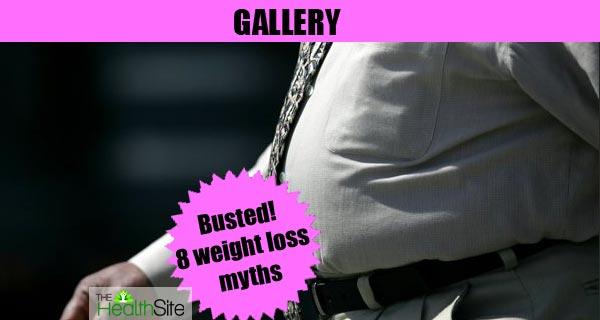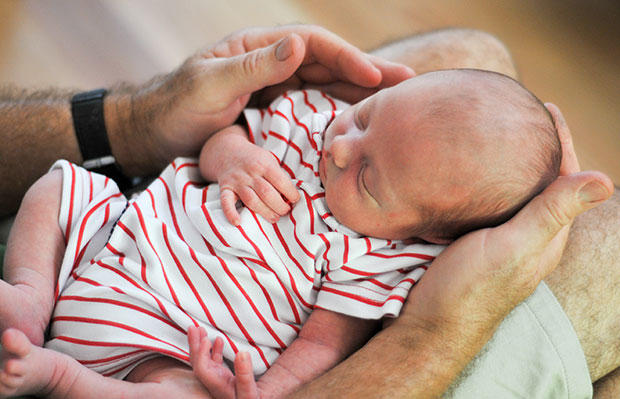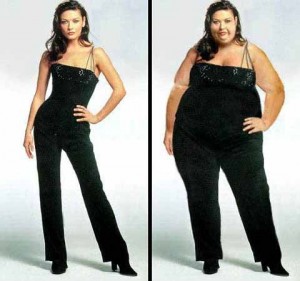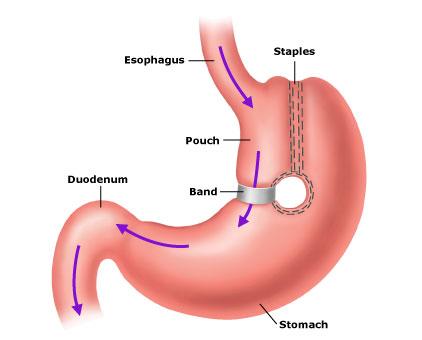How to Lose a Pound a Day
For long-term weight loss, it is not recommended to lose more than 1-2 pounds per week, but if you're looking to jump-start your weight loss or shed some extra pounds before a big event, it is possible to lose a pound a day. Read this article to learn how.
Disclaimer: This article is in no way intended to promote rapid weight loss. The best way to lose weight and keep it off is to eat healthy, exercise often, and lose the pounds slowly.
Steps
Part 1 The Logistics
-
1
Know the numbers. In order to lose one pound, you will need to burn 3,500 more calories than you consume in a day. How many calories you burn in a given day just by existing will depend on your current weight and level of physical activity. You can calculate this by multiplying your weight by ten.[1]
- If you weigh 150 pounds, then you burn about 1,500 calories per day just by going about your usual business. If you eat 1,000 calories, then you'll need to burn 3,000 additional calories each day to lose one pound.
-
2
Reduce your caloric intake. To lose a pound a day, you should consume between 800 and 1,200 calories a day depending on your weight and how much you exercise. You can cut down on calories by both eating smaller portions and by eating healthier foods.
- Eat low-calorie foods that fill you up. Your diet should consist primarily of vegetables and lean proteins. Eat lettuce, celery, broccoli, green beans, spinach, and other greens. For protein, eat chicken, turkey, fish, and tofu. Vegetables and proteins fill you up quickly and have very few calories.
- Cut out sugar, fat, salt, and most carbohydrates. While a normal diet should contain these things in moderation, you should cut these foods out completely while trying to lose weight quickly.
- Don't add salad dressings or cooking sauces to your food, as these are loaded with extra calories. Season your food with pepper, lime, vinegar, or hot sauce.
- Cut down on calories by using a cooking spray rather than olive oil, vegetable oil, or butter.
-
3
Keep a weight loss journal. Studies have shown that people who keep track of what they eat by writing it down lose more weight than those who do not.[2] Write down everything you eat in a journal, and be sure to include the calorie content of each food and add the numbers up as you go.
- Include the calories you burned from exercising and subtract them from your total.
- Try using an online food tracking service like My Fitness Pal or Calorie King to make things easier.
-
4
Get one to two hours of aerobic exercise every day. No matter how little you eat, you will absolutely have to burn additional calories in order to lose a pound a day. The following is a list of top calorie-burning aerobic activities:
- Cross Country Skiing. Calories burned per hour: 545 (moderate) to 1,125 (intense).[3]
- Biking. Calories burned per hour: 570 (moderate) to 850 (intense).[4]
- Running. Calories burned per hour: 850 (for an 8 minute mile).[5]
- Boxing. Calories burned per hour: 615 (moderate) to 815 (intense).[6]
- Squash. Calories burned per hour: 850.[7]
- Swimming. Calories burned per hour: 545 (moderate) to 680 (intense).[8]
- Rock Climbing. Calories burned per hour: 540 (Rappelling) to 750 (Ascending).
- Rugby. Calories burned per hour: 681 (moderate) to 715 (intense).[9]
- 5 Join an online fitness community. One wonderful community is Fitocracy. The members of this community are on the same journey– a relentless march toward becoming healthy and fit, but with inevitable setbacks. Become active in the community and you will find an increase of support that will lift you up and over hurdles as they arise. The fitocracy platform allows you to share your goals, daily progress, and your setbacks. The most important aspect of such communities might be knowing that others are walking the same path and are ready to offer unconditional support as well as their experiences in overcoming difficulties.
-
6
Drink plenty of water. Not only does drinking water keep your stomach full, it will help replenish your fluids and keep you energetic while exercising. Drink between 10-12 cups of water each day.
- Add lemon, lime, or cucumber to your water to make it more appealing.
- 7 Don't eat anything after 7:00pm. Remember that your metabolism slows down dramatically while you are sleeping, so you will need to give your body ample time to digest everything you eat before going to bed. The earlier you finish eating for the day, the better. Be sure to eat a proper dinner, though, so that you don't wake up hungry in the middle of the night.
Part 2 Curbing Your Appetite
-
1
Drink green tea. Tea and other caffeinated beverages like coffee help suppress the appetite and boost your metabolism.[10]
- Try not to drink more than two cups of coffee per day, as it can leave you feeling nervous and jittery.
- 2 Chew gum. Many people overeat and smoke because of an oral fixation. Combat this by keeping your mouth busy with a stick of gum. Plus, chewing gum burns calories and strengthens the jawbone.
- 3 Brush and floss your teeth between meals. Having a clean, fresh mouth will prevent you from snacking on foods, and as an added bonus, will keep your teeth and gums healthy!
- 4 Eat ginger root. Ginger energizes the body and helps speed up digestion.[11] Make ginger tea by boiling some ginger root in hot water, or cut up some ginger and add it to your salad or stir-fry.
- 5 Sprinkle some cayenne pepper onto your food. This will add some flavor to your meal while boosting your metabolism.[12]
- 6 Eat apples. Apples are a dieter's best friend; they help keep you full because they are rich in fiber, they help regulate glucose levels, and keep you feeling energetic even when you are cutting down on calories.[13]
- 7 Keep yourself busy. The best way to eat less is to find something that you enjoy doing even more than (or just as much as) eating food. If you feel the urge to snack, then take a warm bubble bath, paint your nails, read a book, call a friend, go out for a walk, pop in your favorite movie, or go shopping.
-
Weight Gain Program
We have an effective program for gaining weight. Gaining weight also
-
How to Lose Weight and Stay Healthy With a Disability
Many people find that weight can slowly creep on to their bodies. If
-
Basic Weight loss & Diet Tips (1 to 10)
1. Drink plenty of water. Our body need
-
Are bananas as bad for you as cookies?
You are hungry and you’re looking for something to grab
-
This Couple Lost 295 Pounds Together. Heres How They Did It.
After learning he was diabetic, Mark Trenkle, 43, got mad…and t
-
Finding A Quick Diet Loss Plan
A quick weight loss diet plan is rare to find. Diet pills available c
- DON'T MISS
- How To Cut One Million Calories
- Surefire Ways to Burn Fat Fast.
- How to Exercise a Fat Pony to Help Weight Loss
- How to Lose 15 Pounds in 2 Weeks
- The Best Weight Loss Techniques
- Lose Thigh Fat Tips Including Inner Thigh
- Want To Lose Weight? Don’t Hesitate – Read These Tricks & Tips!
- Keeping a Food Journal for Weight Loss Success
- Expert Weight Loss Ideas That Can Help You Succeed
- Using your Wii for fitness




